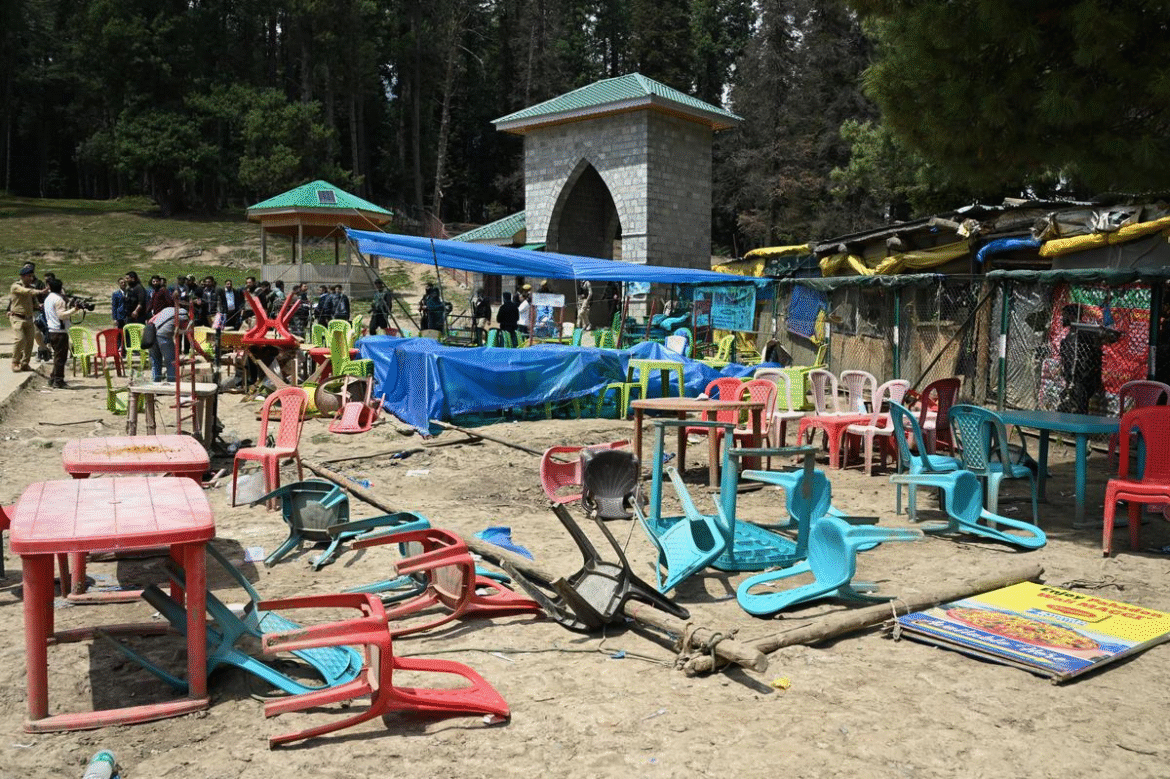AI Generated Summary
- The United Nations Security Council (UNSC) has, for the first time, officially acknowledged the role of The Resistance Front (TRF)—a proxy of the Pakistan-based terror outfit Lashkar-e-Taiba (LeT)—in the April 22 terrorist attack in Pahalgam, Jammu and Kashmir.
- The development is particularly notable as it marks the first mention of LeT and Pakistan-based terror outfits in a UNSC monitoring report since 2019.
- The timing of the UNSC report also coincides with the United States formally designating TRF as a terrorist organization earlier this month, signaling growing international consensus on the group’s threat.
The United Nations Security Council (UNSC) has, for the first time, officially acknowledged the role of The Resistance Front (TRF)—a proxy of the Pakistan-based terror outfit Lashkar-e-Taiba (LeT)—in the April 22 terrorist attack in Pahalgam, Jammu and Kashmir.
This landmark recognition came through a report by the UNSC’s Monitoring Team, which oversees sanctions on terrorist groups under Resolution 1267. The report directly implicates TRF in the deadly attack that left 26 civilians dead and highlights the operational link between TRF and LeT. A member state was quoted in the report as saying that the attack could not have taken place without LeT’s support and identified an existing relationship between the two groups.
The development is particularly notable as it marks the first mention of LeT and Pakistan-based terror outfits in a UNSC monitoring report since 2019. It is expected to strengthen India’s ongoing diplomatic campaign to expose and counter Pakistan-backed cross-border terrorism.
According to the report, five terrorists were involved in the Pahalgam attack, which was claimed by TRF on the same day. The group even released a photograph from the site to assert its role. However, curiously, TRF retracted its claim four days later and has remained silent since, with no other group stepping forward to accept responsibility. The Monitoring Team took note of this suspicious retraction, while underlining the possible intention to muddy attribution and reduce international scrutiny.
The timing of the UNSC report also coincides with the United States formally designating TRF as a terrorist organization earlier this month, signaling growing international consensus on the group’s threat.
India’s Ministry of External Affairs (MEA) has played a proactive role in this outcome. Since late 2023, the MEA has provided multiple submissions to the UNSC’s Monitoring Team detailing TRF’s operations and its ties to LeT. In May 2024, an inter-ministerial delegation from India travelled to New York, where it presented a comprehensive dossier on TRF and briefed UN officials and key Security Council members.
The revelations come at a time when Pakistan holds the rotating presidency of the UNSC, and its government has been accused of manipulating narratives around terrorism. Pakistan’s foreign minister, Ishaq Dar, had earlier boasted in the National Assembly about influencing UNSC language to omit references to TRF in a press statement condemning the Pahalgam attack.
Security analysts have long pointed to Pakistan’s strategy of plausible deniability in its terror operations—promoting groups like TRF and the People Against Fascist Front that use seemingly secular or indigenous-sounding names to conceal affiliations with internationally banned outfits like LeT and Jaish-e-Mohammed (JeM).
With regional stability under constant threat and fragile diplomatic relations, the UNSC’s acknowledgment of TRF’s role and its links to LeT is being viewed as a pivotal moment. It underlines the broader international concern over Pakistan’s continued patronage of terrorism under the guise of separatist movements.
The UNSC’s Monitoring Team, originally created to track Al-Qaida, has expanded its scope over the years to include other terror outfits like ISIS and LeT. Its latest report now serves as a critical piece of evidence in India’s long-standing campaign to hold Pakistan accountable on the global stage.
As one senior Indian official put it, “This report is not just a diplomatic win; it’s a recognition of a reality we’ve been highlighting for years. The world can no longer ignore the machinery of terror operating from across our borders.”




